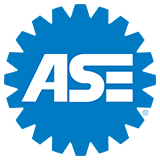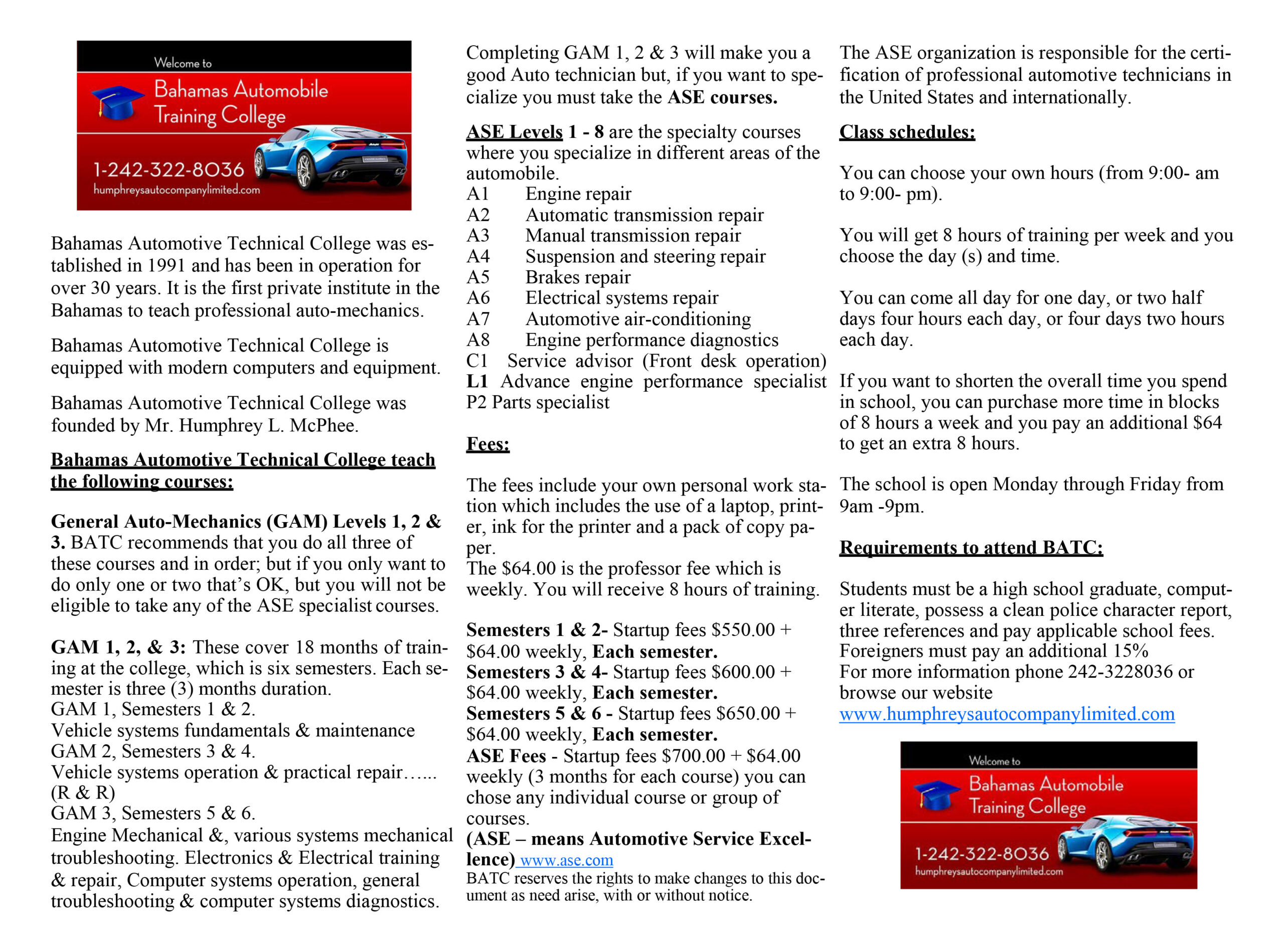
Mission statement: Our mission is to train tomorrow’s professional technicians.
Location: Centrally located in the middle of the city of Nassau in New-Providence Island in the Bahamas.
Exact street address: Acklins street and Cordeaux avenue
Landscape: Situated on over 30,000 square feet of ground, with level asphalt and green space.
Building: Over 3,000 square feet of inventory, administration space and waiting area, plus over 2,000 square feet of garage building with 8 work bays.
Synergistic resources: We have our own real world garage with 8 work bays and a franchised parts department.
Special resources: Include international affiliation with companies that provide automotive education, a library with hundreds of books, magazines, VHS videos, interactive CDs. and DVDs. Internet access in the office, classrooms and the garage. We also have an instructor with certification in ASE Master & L1, ATRA-Licensed Transmission Rebuilder, AMI- Accredited Automotive Manager (AAM), Management Success Institute graduate (Shop Manager), with over 25 years of practical experience and over 20 years of business experience.
History and success: Bahamas Automotive Technical College was established in 1991 and we are proud of our history. We measure success by the success of our graduates and we are very successful in our mission; many of our graduates have their own businesses and some are foremen and lead technicians on their jobs. This testifies to the quality of the training students receive at Bahamas Automotive Technical College.




